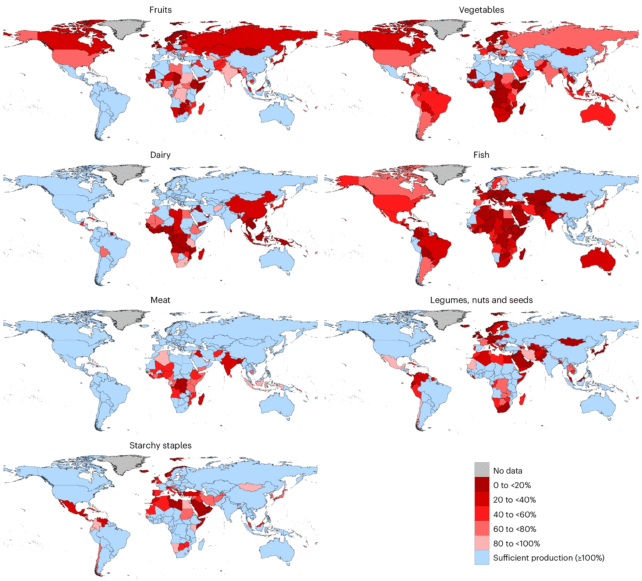Global politics don't feel particularly cooperative at the moment, but which countries could actually feed themselves independently if all international food trade shut down?
Just one, according to a new study.
Researchers from the University of Göttingen in Germany and the University of Edinburgh analyzed food production data from 186 countries. The findings revealed that Guyana is the only country that can be entirely self-sufficient in all seven key food groups that the study focused on.
China and Vietnam were the runners-up, producing enough food to meet their populations' needs in six out of the seven categories.
Just one in seven countries hits the quota in five or more food groups, while more than a third are self-sufficient in two or fewer groups. Six countries – Afghanistan, the United Arab Emirates, Iraq, Macau, Qatar, and Yemen – were unable to meet self-sufficiency in any food group.

Even zooming out a little, economic unions made up of multiple countries showed similar patterns.
The Gulf Cooperation Council in the Middle East, for example, achieves self-sufficiency only in meat, while unions in West Africa and the Caribbean only hit the mark for two groups. No economic union produces enough vegetables to feed its entire population.
To fill the gaps and meet the dietary needs of their populations, most countries rely on trade. However, many still depend on a single trade partner for over half their imports, which leaves them especially susceptible to market shocks.
Maintaining diverse trade networks between countries and regions is crucial for future food supplies, the team says. Tit-for-tat tariffs probably aren't helping.
"International food trade and cooperation is essential for healthy and sustainable diets. However, heavy reliance on imports from single countries can leave nations vulnerable," says Jonas Stehl, developmental economist at the University of Göttingen.
"Building resilient food supply chains is imperative for ensuring public health."
The research was published in the journal Nature Food.
